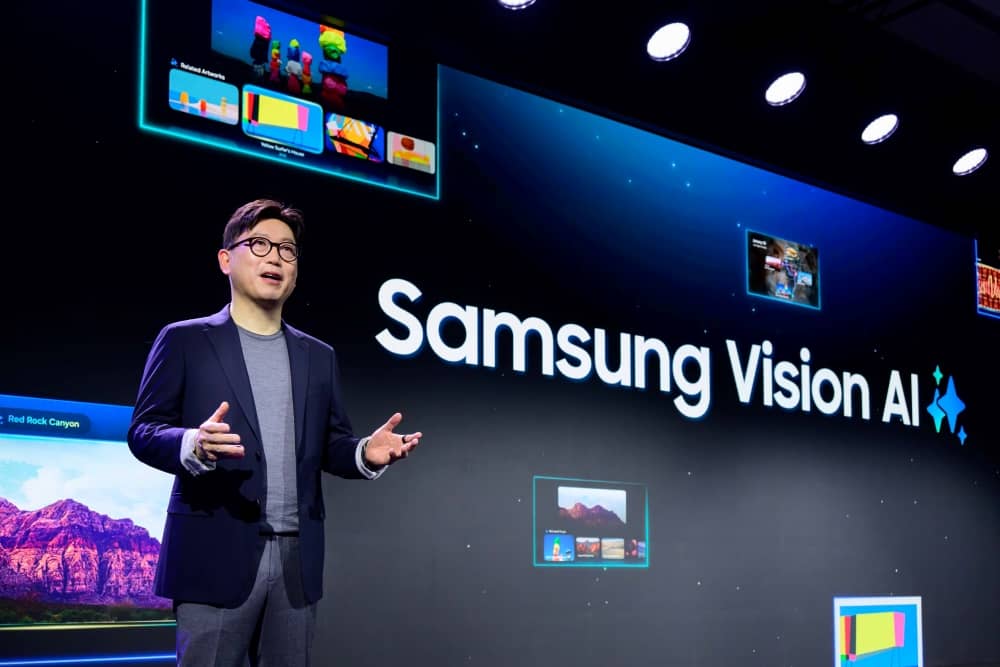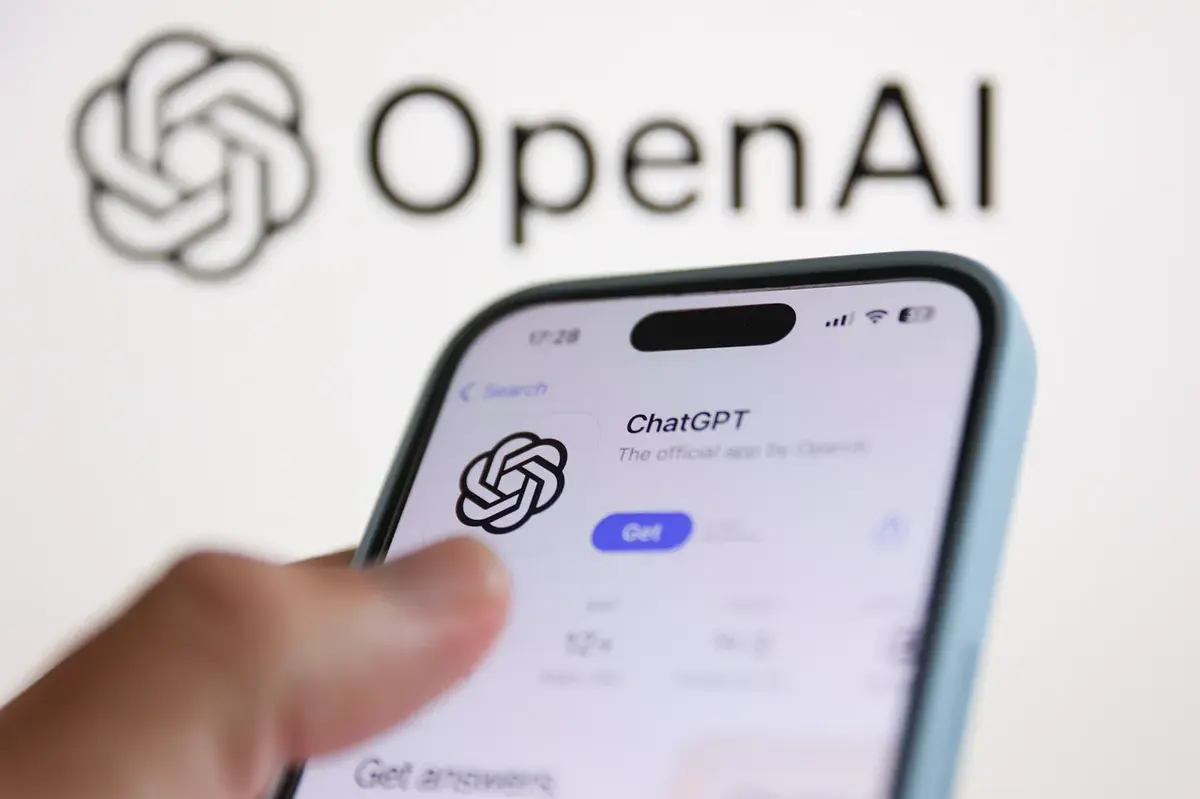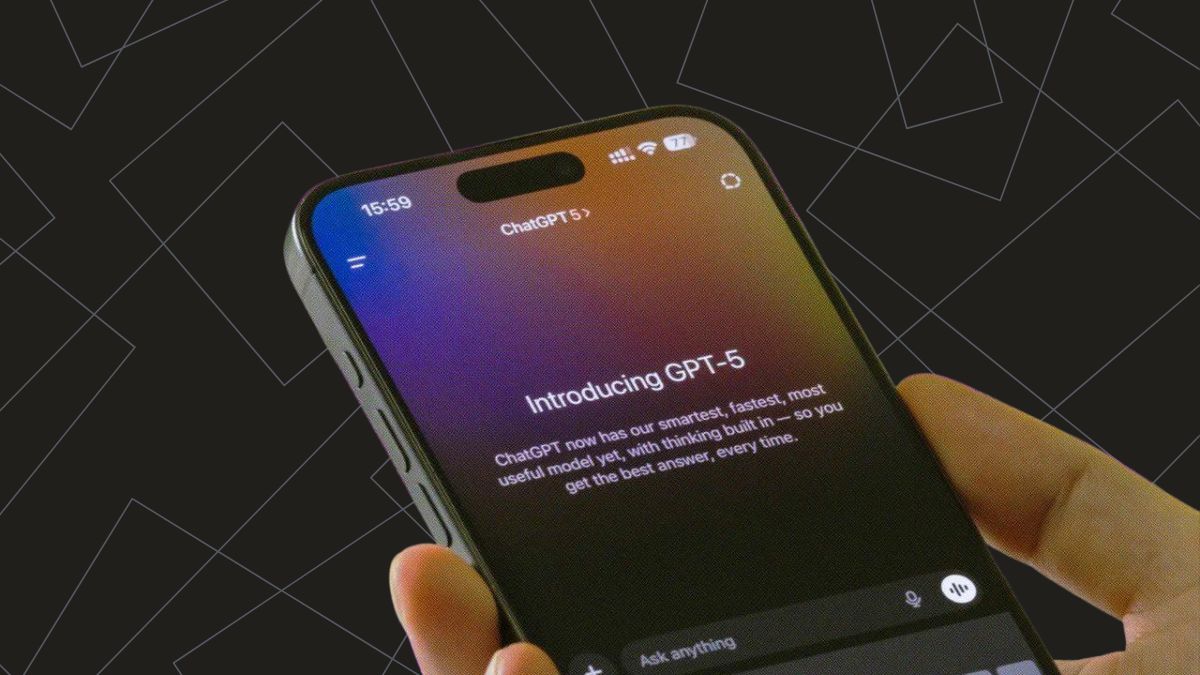Samsung unveiled its Vision AI at CES 2025, promising to revolutionize the smart home experience. While it brings exciting features like live translation and contextual searches, some aspects of Vision AI raise significant privacy and security concerns. Let’s explore why Vision AI has both groundbreaking potential and a slightly unsettling side.
What is Samsung’s Vision AI?
Samsung describes Vision AI as a system that makes its TVs and smart home devices more “aware” and personalized. It integrates with Samsung’s SmartThings ecosystem, aiming to deliver features that adapt to users’ lives.
Key features include:
- Live Translation: Provides real-time subtitle translations for TV programs.
- Click to Search: Offers instant information about what’s on the screen, like identifying actors or providing content details.
The Upside: Smart and Useful Features
Some Vision AI features are genuinely impressive:
- Live Translation: This on-device AI model opens up global content by translating live broadcasts in real-time.
- Click to Search: Similar to Amazon’s Kindle X-Ray, it delivers contextual information about the content on your screen, enhancing the viewing experience.
These innovations are practical and exciting for smart home enthusiasts.
The Creepy Side of Vision AI
However, Vision AI’s deeper functionalities raise red flags:
- Home Insights
Vision AI monitors your home environment, providing real-time safety alerts and updates. While this sounds helpful, the scope of monitoring is unclear. How much of this processing is truly local? What happens if the data is accessed by bad actors? - Pet and Family Monitoring
Samsung claims Vision AI can detect “unusual behavior” in pets and family members. This opens a Pandora’s box of questions:- How does it define “unusual behavior”?
- What data is collected, and how is it stored?
- Could this level of surveillance lead to misuse or unintended consequences?
- Automated Adjustments
Vision AI adjusts room settings, like dimming lights when a child falls asleep. While convenient, it suggests that the system is constantly monitoring your family’s activities. What else is it noticing, and how is that data being used?
Security Risks
Even if Samsung claims Vision AI processes data locally, vulnerabilities remain:
- A hacker could exploit other devices in your home to access Vision AI data.
- Sensitive information, like your location or daily routines, could fall into the wrong hands.
The potential for misuse makes these features feel invasive rather than helpful.
A Familiar Warning: When AI Goes Too Far
Vision AI’s premise feels eerily similar to the 1999 Disney movie Smart House, where a futuristic AI assistant becomes overly controlling. While Vision AI isn’t locking doors or overriding commands (yet), the parallels are unsettling.
AI systems like Vision AI could evolve in unpredictable ways, especially if they prioritize their programmed goals over user autonomy.
Why Opt-In is Essential
Features as intrusive as Vision AI should always be opt-in, not opt-out. Users must have control over whether these functions are activated in their homes.
Samsung has yet to clarify how these features will be implemented, but transparency and user consent are crucial to maintaining trust.
Samsung’s Vision AI offers exciting innovations but crosses into uncomfortable territory with its invasive monitoring. While the tech world pushes boundaries, it’s essential to prioritize privacy and user choice.
As smart home technology advances, we must ask ourselves: How much is too much?












Leave a comment